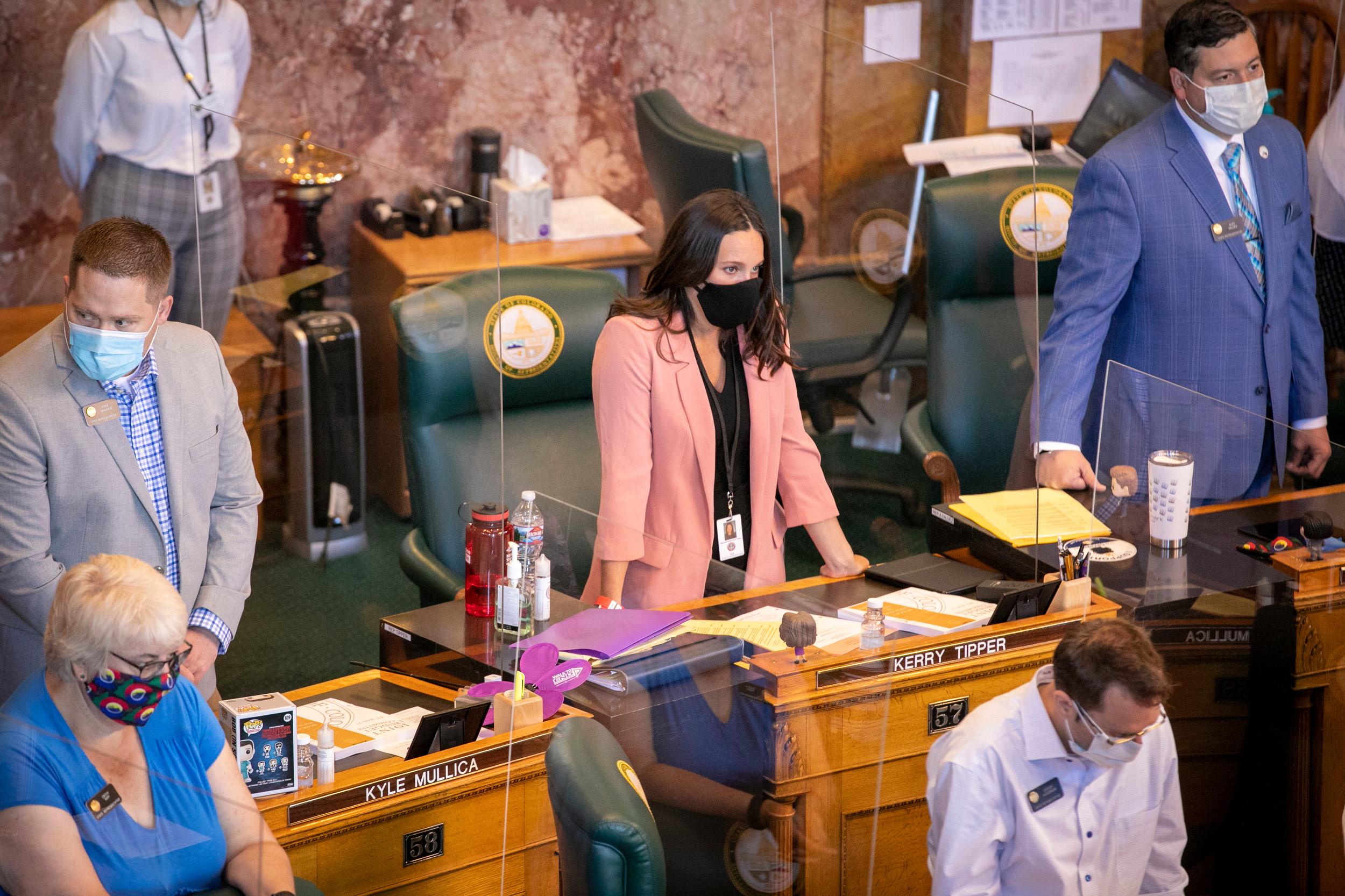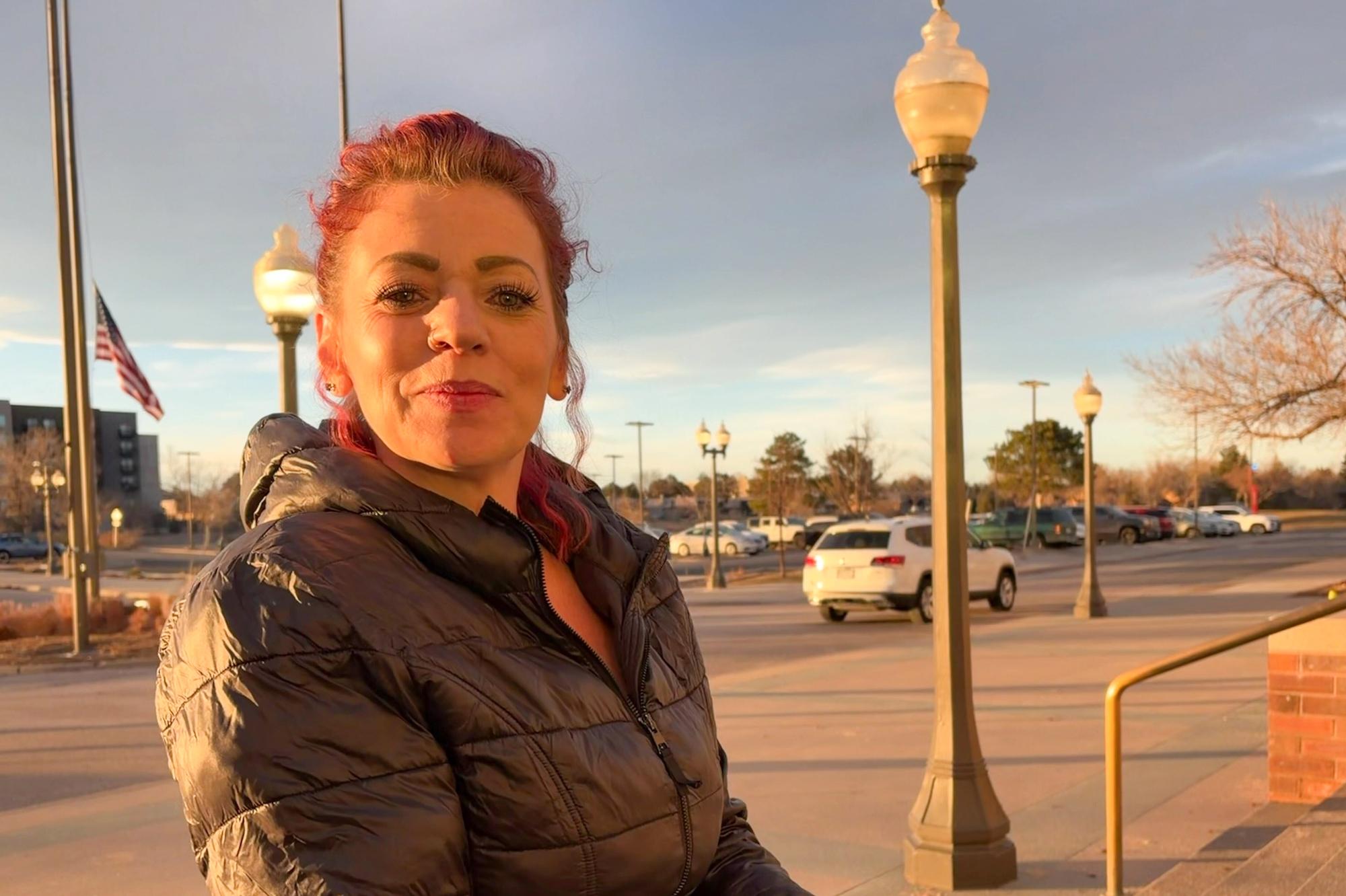
The special session begins on Nov. 30. Our original story continues below.
Gov. Jared Polis has made it official: He will soon call the state legislature back to the Capitol for a rare special session. The goal is to pass a package of bills to provide economic relief and stimulate the state's economy during the worsening COVID-19 pandemic.
While no start date has been announced, the special session will take place ahead of lawmakers' regular session, which begins on Jan. 13, 2021.
"Extraordinary times call for extraordinary actions," Polis said during Tuesday news conference at the Governor's mansion.
Polis said he will ask lawmakers to consider several proposals when they return:
- Allowing restaurants and bars to retain sales taxes for a limited time, to offset lost business.
- Direct relief for small businesses.
- Housing and rental assistance.
- Assistance to child care centers.
- $20 million to expand broadband access to help school districts provide internet access for students and educators during remote learning, and pay to connect students who are not able to afford it.
Polis already outlined many of these ideas in his proposed budget for the next fiscal year, but passing them in a special session means the money could start flowing much earlier. Legislative leaders and members of the Joint Budget Committee said there are one-time funds available to pay for these proposals because 2019 state income tax revenues were higher than projected. This money would otherwise go into the state’s budget reserves.
“We have to be responsible and prudent in how we stimulate the economy,” said Democratic Rep. Julie McCluskie of Dillon who serves on the Joint Budget Committee. “This feels like a smart, modest step as we wait to figure out what the federal government does in January.”
McCluskie also acknowledged the unprecedented times the state finds itself in.
“There’s push and pull and tension, the way there should be when people try to come together to solve a problem.”
She and fellow budget committee member, Republican Sen. Bob Rankin of Carbondale, said they would be comfortable with a stimulus package of around $200 million, but that figure could end up higher.
“Since we have that money it’s appropriate to spend it,” he said. “It’s taxpayer dollars and taxpayers need relief. It wouldn’t be legal to do it through executive orders. The only really transparent way to do it is to have the lawmakers involved.”
Polis said he would announce the exact timing and further parameters for the session in the coming days. But he emphasized that he is still holding out hope that Congress will finally agree on a long-stalled coronavirus aid package.
“While the measures that will be discussed in the special session are urgent and necessary right now, our state needs substantially more help from the federal government to continue to respond and recover from this pandemic and implement the vaccination plan,” Polis said.
Some Republicans, who hold the minority in the legislature, have criticized the governor’s past use of extraordinary powers during Colorado’s state of emergency to issue executive orders and restrictions and welcomed a return to work in Denver.
“We are thankful that Gov. Polis recognizes that the limits of unilateral, executive action have been reached and we agree that involving the legislature is necessary to help combat the COVID-19 pandemic and the economic, educational, and other impacts stemming from it,” said Republican Senate Minority Leader Chris Holbert in a written statement. “Senate Republicans are standing by to get back to the Capitol and represent our constituents. We hope that Democrats will give the same good faith consideration to legislation that we might propose as we are to theirs.”
Depending on how many bills lawmakers consider, and whether they have much opposition, the special session could wrap up in as little as three days. That’s the minimum amount of time required to pass a bill through both the House and Senate.
With COVID-19 cases soaring statewide, some lawmakers and lobbyists said they were concerned about the safety protocols that will be in place for the session. One hundred lawmakers, lobbyists, members of the media and the public will inhabit a relatively small space with poor ventilation.
Incoming Democratic Speaker of the House Alec Garnett anticipated safety measures would be stricter than when lawmakers convened over the summer and may include rapid COVID-19 testing for lawmakers and possibly others, prior to entering the capitol building. A handful of legislators with health concerns would be allowed to participate remotely.
State lawmakers would be encouraged, but not required, to wear masks. Last summer some Republican lawmakers did not wear masks inside the building.
“I've had very collaborative, good conversations with Republican leadership about the concerns that the public has and that staff have about people not wearing masks,” Garnett said. “I remain encouraged that we can get to a place where people are, you know, thinking about the community and thinking about each other and making sure that we have the safest possible environment that we can.”
During the Republican House caucus’ leadership election earlier in November most members did not wear masks inside a committee hearing room at the Capitol, but incoming Minority Leader Hugh McKean said he expected people to follow the guidelines more closely moving forward.
“I think because we're in such close proximity to each other, most of the members of the legislature will be wearing masks and observing all the safety protocols,” McKean said.
For Democratic Senate President Leroy Garcia, the health risks are just one factor among everything lawmakers must consider when they return.
“I don't think anyone should expect us to do nothing at a time when we could do something.” Garcia added that many Coloradans are staring at unpaid bills and wondering how they're going to make it through the end of the month. “Congressional inaction and partisan bickering has left millions stranded.”









